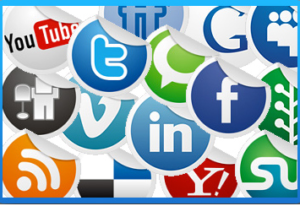 Medical Community Starting to Leverage Social Media
Medical Community Starting to Leverage Social Media
There’s no end to the ways that social media has impacted not just our personal lives, but entire industries. Social sites like Twitter and Facebook have become a resource not just for businesses to reach out to new and existing customers, but for customers to provide feedback about their favorite products, artists, and services.
Now it seems that the medical community will be one of the next groups to start leveraging social media in a big way. How to use it – and what constitutes “best practices” for social media-savvy doctors – will likely be a continuing debate. For now, let’s take a look at some emerging trends, and at some possible implications.
According to Australia’s University of Adelaide, more medical doctors are using social media every day, creating both opportunities and potential risks. Here are the most common applications of social media for social media in the medical community.
Peer-To-Peer
A growing number of doctors are using social media just as anybody would: to create online communities of people with similar interests. Quite simply, doctors are using social media as a way to communicate with other doctors: to gather contacts, build an online reputation, swap stories, and compare notes.
Health Promotion
A number of doctors are also using their voice in social circles to promote good health practices, as well as raise awareness for common (or perhaps not so common) health concerns. Of all the industries making use of social media, the implications of a worldwide network of Internet-savvy doctors is perhaps one of the most exciting; it would be a great way to stay up-to-date on emerging medical breakthroughs or concerns.
Marketing Purposes
Of course, social media is also a terrific tool for marketing, and so many doctors are using social media to promote their services and to reach out to new potential patients.
Risks
As you can see, there are a great many opportunities that doctors can make use of when it comes to social media. Of course, as with anything related to the Internet, there are a number of caveats and point of concern.
To begin with, it’s going to be absolutely imperative that doctors maintain the same sort of doctor-patient confidentiality on the Internet as they would in person. It seems like everyday that some celebrity, politician, or other public figure makes some gaffe on Twitter that they later need to apologize for. It would be all too easy for a doctor, to whom we entrust a great deal of our sensitive and personal issues, to let something slip with an ill-advised Tweet.
It goes without saying that social media is as frequently used for the dissemination of misinformation as it is for quality information. Doctors are already expressing an enthusiasm with the prospect of sharing research-related news with the general public, though the risk of spreading information too soon, or before a breakthrough is fully understood, is also a very real risk. As a result, accuracy will be as important moving forward as timeliness.
That said, social media is in the process of creating a worldwide dialogue between doctors, researchers, and other innovators in the medical community, and the ordinary citizens who will eventually reap the benefits of breakthroughs and general awareness of health issues. Social media is going to be a tremendous engine of change moving forward; we just have to make sure we’re all good stewards of the responsibility that implies.
About the Author: Michelle Rebecca is a blogger who frequently writes about colon and digestive health, social media for the medical industry, and addiction. Follow her on Google+.
